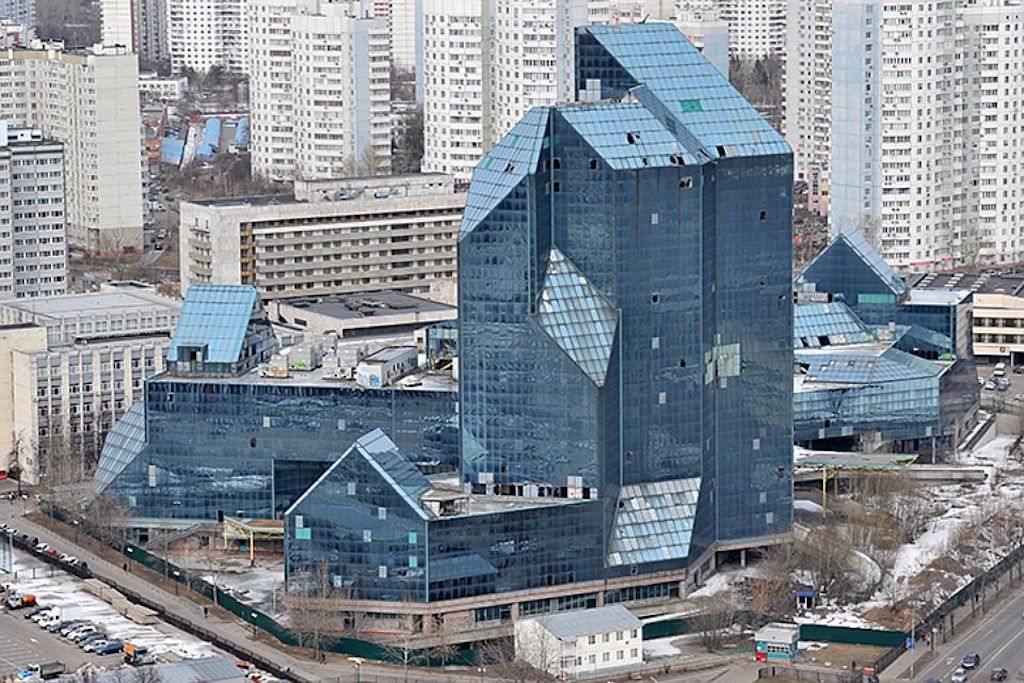Economic Issues in Emerging Markets
As requested on Twitter, here is my syllabus:
Course Schedule
- Concepts of Economic Growth
Reading:
Eva Szalay, “Pound Is Becoming an Emerging Market Currency, Says BofA Analyst,” Financial Times, June 24, 2020, https://www.ft.com/content/4fd04fd9-7209-4b7c-97a1-97466f226159.
Jemima Kelly and Claire Jones, “Sterling Has Not Become an Emerging Market Currency,” Financial Times, June 26, 2020, https://www.ft.com/content/4d7b4e18-5a5f-4f7e-9d32-f27cb329a11c.
2. International Trade
Michael Pettis and Mathew Klein Trade Wars are Class Wars (New Haven: Yale Press, 2020), chapters 1 and 2
Recommended:
Enrique Dussel Peters and Kevin P. Gallagher, “NAFTA’s Uninvited Guest: China and the Disintegration of North American Trade,” August 2013, https://repositorio.cepal.org/handle/11362/37000.
José Antonio Ocampo, “10. Balance-of-Payments Dominance: Implications for Macroeconomic Policy,” in 10. Balance-of-Payments Dominance: Implications for Macroeconomic Policy (Columbia University Press, 2016), 211–28.
Paul Krugman and Lance Taylor, “Contractionary Effects of Devaluation,” Journal of International Economics 8, no. 3 (August 1, 1978): 445–56 (Note: This is a very difficult but foundational article. I highly recommend it but it is the most optional of the optional articles).
3. Foreign Investment
José Antonio Ocampo, “Capital Account Liberalization and Management,” Working Paper (WIDER Working Paper, 2015).
Michael Pettis and Mathew Klein Trade Wars are Class Wars (New Haven: Yale Press, 2020), Ch. 3
Recommended:
Daniela Gabor, “The Wall Street Consensus,” Development and Change 52, no. 3 (2021): 429–59.
Stefan Avdjiev, Robert N. McCauley, and Hyun Song Shin, “Breaking Free of the Triple Coincidence in International Finance,” October 20, 2015, https://www.bis.org/publ/work524.htm.
4. Inflation and Price Stability
Albert O. Hirschman, “Reflections on the Latin American Experience,” in The Politics of Inflation and Economic Stagnation, ed. Leon Lindberg and Charles S. Maier (Brookings Institution Press, 1985), 54–77.
Daniel S. Treisman, “Fighting Inflation in a Transitional Regime: Russia’s Anomalous Stabilization,” World Politics 50, no. 2 (1998): 235–65.
Recommended:
Srinivas Thiruvadanthai, “Inflation Targeting: Exhorbinant Costs, Meager Benefits” (Working Paper, The Private Debt Project, Philadelphia, PA, 2019), https://privatedebtproject.org/pdp/view-hm-articles.php?Inflation-Targeting-Exorbitant-Costs-Meager-Benefits-6
John Taylor, “Inflation Targeting in Emerging Markets: The Global Experience” Hoover Institute Economics, Working Paper Series, 14112, October 30, 2021,
https://www.hoover.org/sites/default/files/14112_-taylor-inflation_targeting_in_emerging_markets-_the_global_experience.pdf5.
5. Tax Systems and Fiscal Balance
Venelin I. Ganev, “The Annulled Tax State: Schumpeterian Prolegomena to the Study of Postcommunist Fiscal Sociology,” Communist and Post-Communist Studies 44, no. 4 (December 1, 2011): 245–55.
Recommended:
Charles Tilly, “War Making and State Making as Organized Crime,” in Bringing the State Back In, ed. Peter B. Evans, Dietrich Rueschemeyer, and Theda Skocpol (Cambridge: Cambridge University Press, 1985), 169–91.
Ping Zhang and Yijia Jing, “Strategies in Adopting Unpopular Policies in China: The Case of Property Tax Reform,” Journal of Contemporary China 29, no. 123 (May 3, 2020): 387–99.
6. Social Spending and Policy
Armando Barrientos et al., “‘Growing’ Social Protection in Developing Countries: Lessons from Brazil and South Africa,” Development Southern Africa 30, no. 1 (March 1, 2013): 54–68.
Lena Lavinas, “The Collateralization of Social Policy under Financialized Capitalism,” Development and Change 49, no. 2 (2018): 502–17.
Recommended:
Pavlina R. Tcherneva and L. Randall Wray, “Gender and the Job Guarantee: The Impact of Argentina’s Jefes Program on Female Heads of Poor Households,” SSRN Scholarly Paper (Rochester, NY: Social Science Research Network, December 1, 2005).
James Ferguson and Tania Li, “Beyond the ‘Proper Job:’ Political-Economic Analysis after the Century of Labouring Man Institute for Poverty, Land And Agrarian Studies,” April 13, 2018.
7. Currency Regimes
Maurice Obstfeld and Alan M. Taylor, “International Monetary Relations: Taking Finance Seriously,” Journal of Economic Perspectives 31, no. 3 (August 2017): 3–28.
Hélène Rey, “Dilemma Not Trilemma: The Global Financial Cycle and Monetary Policy Independence” (National Bureau of Economic Research, May 18, 2015).
https://www-nber-org.libproxy1.usc.edu/papers/w2116
Recommended:
Read Brad Setser and S.T. Will’s Investigation into Taiwan’s Currency Policy Here:
Perry Mehrling, “Essential Hybridity: A Money View of FX,” Journal of Comparative Economics, Law in Finance, 41, no. 2 (May 2013): 355–63.
8. Banking Policy And Climate Change
Stephany Griffith-Jones, Samantha Attridge, and Matthew Gouett, “Securing Climate Finance through National Development Banks,” Research Report (ODI Report, 2020), https://www.econstor.eu/handle/10419/216988.
Live session: First Round Group Presentations
9. Debt Crises
Jan A. Kregel, “East Asia Is Not Mexico: The Difference between Balance of Payments Crises and Debt Deflations,” SSRN Scholarly Paper (Rochester, NY: Social Science Research Network, May 1, 1998), https://papers.ssrn.com/abstract=100788.
Optional:
Jeremy Roos, Why Not Default: The Political Economy of Sovereign Debt (Princeton: Princeton University Press, 2019), Introduction, Chapter 1, Chapter 2.
10. Corruption, Lobbying, and Governance
Cooley, Alexander, John Heathershaw, and J.C. Sharman. “The Rise of Kleptocracy: Laundering Cash, Whitewashing Reputations”. Journal of Democracy 29, no. 1 (January 2018): 39-53.
Ronen Palan and Anastasia Nesvetailova, “Elsewhere, Ideally No Where,” CITYPERC Working Paper No. 2014-01
Optional:
Neil Robinson, “Economic and Political Hybridity: Patrimonial Capitalism in the Post-Soviet Sphere,” Journal of Eurasian Studies 4, no. 2 (July 2013): 136–45.
Vadim Volkov, “Violent Entrepreneurship in Post-Communist Russia,” Europe-Asia Studies 51, no. 5 (July 1, 1999): 741–54.
11. Geoeconomics
Henry Farrell and Abraham L. Newman, “Weaponized Interdependence: How Global Economic Networks Shape State Coercion,” International Security 44, no. 1 (July 1, 2019): 42–79.
Optional:
Devika Dutt, Exorbitant Privilege or Ultimate Responsibility?: Access to the International Lender of Last Resort, Job Market Paper, 2020
https://devikadutt.github.io/JMP/
Yakov Feygin and Dominik Leusder, “The Class Politics of the Dollar System” Phenomenal World, May 1, 2020
https://www.phenomenalworld.org/analysis/the-class-politics-of-the-dollar-system/
12. Natural Resources: Costs and Benefits
W. M. Corden, “Booming Sector and Dutch Disease Economics: Survey and Consolidation,” Oxford Economic Papers 36, no. 3 (1984): 359–80.
James A. Robinson, Ragnar Torvik, and Thierry Verdier, “Political Foundations of the Resource Curse,” Journal of Development Economics, Special Issue in honor of Pranab Bardhan, 79, no. 2 (April 1, 2006): 447–68.
Optional:
Erling Røed Larsen, “Escaping the Resource Curse and the Dutch Disease? : When and Why Norway Caught up with and Forged Ahead of Its Neighbors,” Working paper, 34 s. (Statistics Norway, Research Department, 2004), https://ssb.brage.unit.no/ssb-xmlui/handle/11250/180569.
Juan M. Ramírez-Cendrero and Eszter Wirth, “Is the Norwegian Model Exportable to Combat Dutch Disease?,” Resources Policy 48 (June 1, 2016): 85–96.
13. Strategies for Growth
Live Session: Final Presentations
